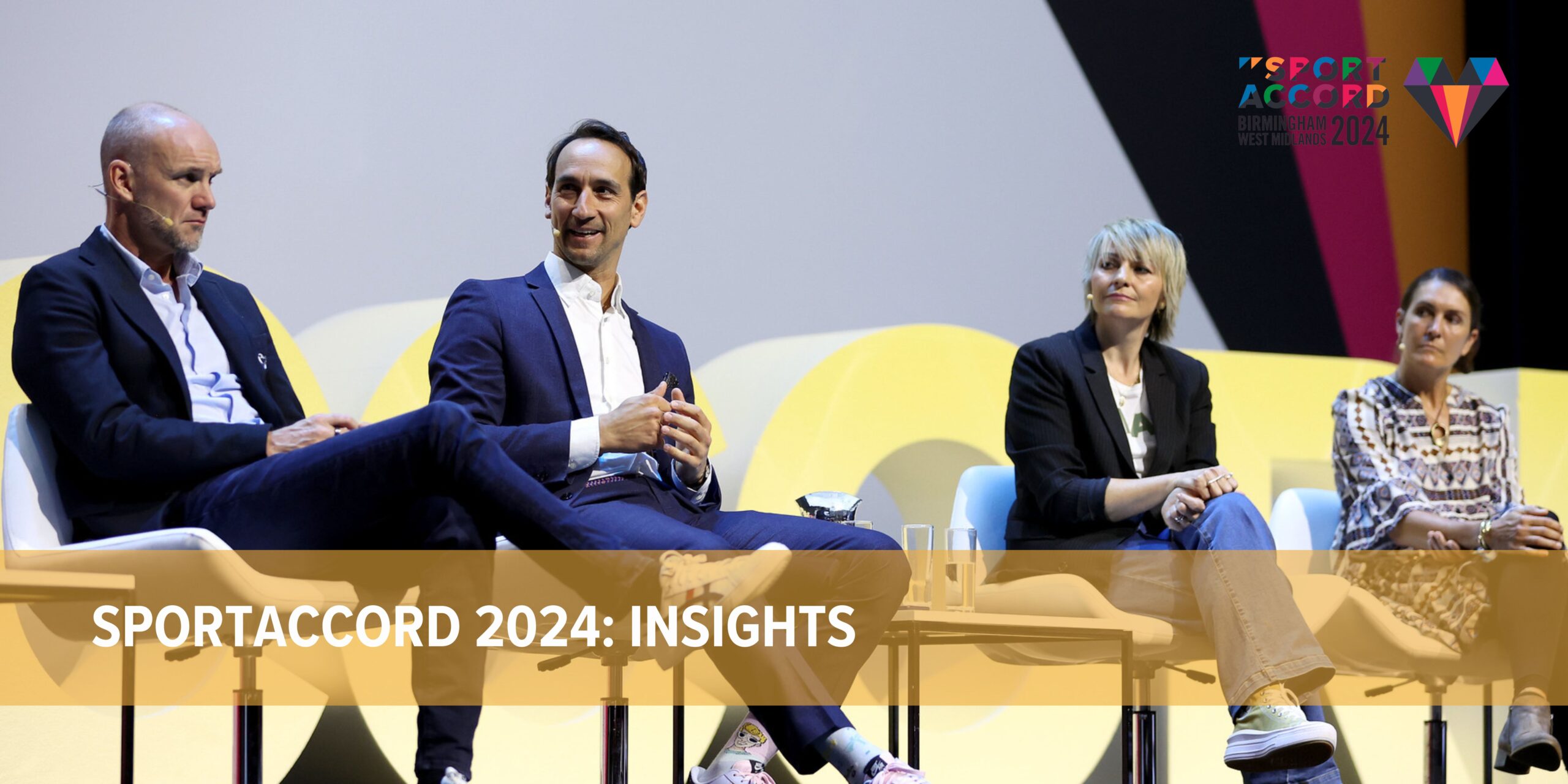Festivalisation – exciting festival-style programming, ultimately designed to produce the “wow” response from event goers – was perfectly showcased at the Olympic Games in Paris, which came to a close just a few days ago.
Enormous efforts went into creating a highly engaging, inclusive event appealing to fans, residents and athletes alike – coming again soon with a strong sequel: the most spectacular Paralympic Games in history.
SportAccord 2024 – rewind
As we counted down to Paris 2024, the hot topic of how far festivalisation of major sport events can (or should) go came under the spotlight at SportAccord 2024 – the world’s most influential gathering in global sport – with expert rights holders, event organisers and host cities highlighting the opportunities, latest trends and challenges – here are some key take-aways:
![]()
Widening audiences through sport
Enriching a major sport event with different forms of entertainment – arts, culture or music – is definitely an invaluable opportunity to attract people on top of the classical sports fans.
This approach proved highly successful with the Birmingham 2022 Commonwealth Games, as panellist Nicola Turner, CEO of United By 2022 (the official Games legacy charity) explained: “We wanted to get communities involved, and we wanted to bring people together.” Besides the eleven days of sporting action, the organisers put on a comprehensive education, arts and culture festival which ran over six months and saw a record high of ticket sales. In addition, starter-friendly sport initiation programmes in the competition venues were highly popular at Birmingham 2022 and have become common practise at many events.
![]()
Make the event fit the city
Every hosting region should look at what’s important for them and then leverage the major sport event accordingly.
“I think it’s important when we look at these big events to try and link them back to what are the existing goals of the city and not try to change the city to fit the event – make the event fit the city,” highlighted Alana Vought, Programme Manager of the Olympic and Paralympic Games Brisbane 2032, City of Gold Coast. The 2032 Games will be staged across Australia and Oceania, so engaging the communities of these regions is key for the organisers.
For instance, the region of Gold Coast is passionate about the film industry – so the organisers of the Gold Coast 2018 Commonwealth Games planned a film festival around their Games. Through public-private partnerships, the region also leveraged the Games to create a sound stage which hosted three events in 2018 and is still in place – so far attracting more than USD 550 million of investment into the city, serving as best practise and inspiration to the Brisbane 2032 organisers.
Balancing innovation with the ability to deliver
When it comes to events organised by International and National Federations (IFs and NFs), it is essential to balance the motivation of innovating and creating new formats with the bandwidth of the organisers, warned Kris Gemmell, Head of Marketing and Commercial at World Triathlon.
He shared valuable experience from his federation, which in 2017 started with grouping events over a longer period of time in the same location, which proved to be commercially interesting for the rights holders.
In his view, an open mindset and collaboration with all key stakeholders have been keys for success when further developing international triathlon events.
Georg Spazier, CEO of ITS GmbH in Innsbruck, an agency which helps to organise major events in the fields of sport and tourism, emphasised that expectations from all event stakeholders have grown significantly over the past twenty years, putting certain burdens on the organisers: “Your job is primarily to do sport events, but now you are also organising all these cultural events on top, which is often not reflected in the allocated budget.”
Spazier also cautioned against the risk of these side events taking away too much spotlight from the sports part, which should remain the core.
Meanwhile, many IFs have improved the sports presentation in the competition venues, using different entertainment opportunities to advertise the appeal of their respective sports to the spectators onsite.
Volunteers at the heart of the operations
One thing is for sure: festivalisation for whatever sport event would not happen without skilled and dedicated volunteers. A large pool of volunteers turned out to be a tangible human legacy of the Birmingham 2022 Commonwealth Games, as has been the case for other major multi-sports events. Around 2,500 volunteers from Birmingham 2022 are still available to help out at sport events hosted by the region and were also on hand for SportAccord 2024, as Nicola Turner explained during the session. “You need volunteers to do this!”
![]()
Sports + Entertainment?
So should sports events include non-sports entertainment? SportAccord’s audience was split when confronted with this thought-provoking question.
For Alana Vought it’s about finding the perfect mix: “In sports we connect with the really human high highs and the low lows,” alluding to the fine line between winning and losing on the field of play and the related suspense.
“That’s the difference in sports entertainment, that’s the real human raw connection, whereas with other forms of entertainment you can sit back and enjoy that more. The mix of both is important when we look at festivalisation.”
Get more insights on festivalisation of major sport events and watch the full session on SportAccord’s YouTube channel.




